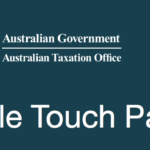“Investors, venture capital funds and innovative companies in all industries will benefit from the measures introduced by the recent Federal Budget aimed at luring wealthy investors with globally competitive tax incentives”
What are the tax incentives?
Tax incentive for early stage investors:
- This will give concessional tax treatment to investors to promote investment in innovative, high-growth potential start-up companies.
- It includes a 20% non-refundable carry forward tax offset on investments in qualifying companies, capped at $200,000 per investor per year;
- And a 10 year exemption on capital gains tax, provided investments are held for 12 months or more.
New arrangements for venture capital limited partnerships
- This will deliver changes to the tax treatment of early stage venture capital limited partnerships (ESVCLP) to attract more investment into venture capital.
- Investors will receive a 10% cent non-refundable carry forward tax offset on capital invested through an ESVCLP.
- The maximum fund size for new and existing ESVCLPs will be increased to $200 million with a number of reforms made to the income tax treatment of venture capital more generally.
Who is eligible?
The tax incentives will be available for investments in companies that:
- undertake an eligible business (scope to be determined)
- that were incorporated during the last three income years
- aren’t listed on any stock exchange
- have expenditure and income of less than $1 million and $200,000 in the previous income year respectively.
The scheme is based on the successful UK Seed Enterprise Investment Scheme which raised over AUD$500 million in startup investment for almost 2,900 companies in its first two years.
In general, wealthy clients who want to diversify their portfolios with high-risk high-reward investments but wouldn’t ordinarily take the plunge in very early stage companies. The new incentives were “attractive enough” to get them over the line.
How it will work in practice?
Jessica is the founder of a startup business called PaySmart Pty Ltd that is developing a software application to automate bill payments. She is looking to raise $200,000 in equity finance to continue developing of the software.
Alex is an experienced early stage (angel) investor and believes that PaySmart has excellent growth potential. He invests $200,000 and claims a 20% non-refundable tax offset, reducing his income tax payable by $40,000.
In addition to contributing capital, Alex uses his business skills to help PaySmart grow. He sells his shares for $400,000 four years later. As Alex has held the investment in PaySmart for the minimum three year period and less than 10 years, the full capital gain of $200,000 is exempt from capital gains tax.




